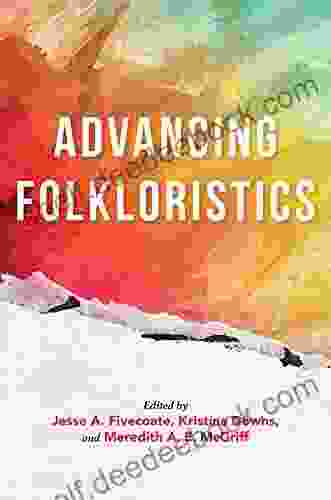Functional Genomics in Aquaculture: Unlocking the Potential of Aquatic Species

Abstract
Functional genomics is an emerging field that combines molecular techniques with genomic information to investigate the relationship between genotype and phenotype. In aquaculture, functional genomics has provided a wealth of insights into the genetic basis of important traits, such as growth, disease resistance, and environmental tolerance. This article provides a comprehensive overview of functional genomics in aquaculture, including its principles, applications, and recent advancements. It highlights the potential of functional genomics to enhance production, sustainability, and disease resistance in farmed species, thus addressing the growing global demand for seafood.
Aquaculture, the farming of aquatic organisms, is a rapidly growing industry that plays a vital role in meeting the increasing global demand for seafood. However, the sustainability of aquaculture is challenged by various factors, including disease outbreaks, environmental degradation, and the need to produce more food with fewer resources. Functional genomics offers a powerful tool to address these challenges by providing a deeper understanding of the genetic basis of important traits in aquatic species.
4.3 out of 5
| Language | : | English |
| File size | : | 1547 KB |
| Text-to-Speech | : | Enabled |
| Screen Reader | : | Supported |
| Enhanced typesetting | : | Enabled |
| Print length | : | 374 pages |
Principles of Functional Genomics
Functional genomics combines traditional molecular biology techniques with genomic information to analyze the function of genes and their products. It involves studying gene expression, protein-protein interactions, and metabolic pathways to identify the molecular mechanisms underlying specific traits. High-throughput technologies, such as microarrays and DNA sequencing, allow researchers to analyze the expression of thousands of genes simultaneously, providing a comprehensive view of the cellular processes involved in different biological functions.
Applications of Functional Genomics in Aquaculture
Functional genomics has numerous applications in aquaculture, including:
- Gene expression profiling: Identifying genes that are differentially expressed in response to specific environmental conditions or during different developmental stages. This information can help identify key regulators of important traits, such as growth, reproduction, and disease resistance.
- Protein-protein interaction studies: Determining the interactions between proteins involved in specific biological processes. This knowledge can lead to the identification of new drug targets and the development of more effective treatments for diseases.
- Metabolic pathway analysis: Understanding the metabolic pathways involved in specific traits, such as nutrient utilization and energy production. This information can help optimize feed formulations and improve the efficiency of aquaculture systems.
- Genetic engineering: Manipulating genes to improve desirable traits, such as growth rate, disease resistance, and tolerance to environmental stress. This approach can accelerate the development of new and improved aquaculture strains.
- Selective breeding: Using genetic information to select individuals with superior traits for breeding purposes. This can increase the genetic gain and accelerate the improvement of aquaculture stocks.
Advancements in Functional Genomics
Recent advancements in functional genomics technologies are revolutionizing the field of aquaculture. These advancements include:
- Next-generation sequencing: High-throughput DNA sequencing technologies that allow for the rapid and cost-effective sequencing of entire genomes. This has enabled the identification of numerous genes and genetic variations associated with important traits.
- Genome editing: Techniques, such as CRISPR-Cas9, that allow researchers to precisely modify genes. This has opened up new possibilities for genetic engineering and the development of improved aquaculture strains.
- Systems biology: An approach that integrates data from multiple omics platforms (e.g., genomics, transcriptomics, proteomics) to provide a comprehensive understanding of biological systems. This approach can help identify complex networks and pathways involved in specific traits.
Potential Benefits of Functional Genomics in Aquaculture
Functional genomics has the potential to transform aquaculture by enhancing production, sustainability, and disease resistance in farmed species. Some of the potential benefits include:
- Increased growth rate: Identifying genes and pathways involved in growth regulation can lead to the development of new feed formulations and genetic improvements that increase growth rate and reduce production time.
- Enhanced disease resistance: Understanding the genetic basis of disease resistance can help identify new drug targets and develop more effective vaccines and treatments. This can reduce disease outbreaks and improve the health and welfare of farmed species.
- Improved environmental tolerance: Identifying genes and pathways involved in environmental stress tolerance can help develop new aquaculture strains that are more resilient to challenging environmental conditions, such as temperature fluctuations and pollution.
- Reduced environmental impact: Optimizing feed formulations and improving disease resistance can reduce the environmental impact of aquaculture by reducing nutrient runoff and the use of antibiotics.
- Increased consumer acceptance: Developing aquaculture products with improved quality and nutritional value can increase consumer acceptance and demand for farmed seafood.
Challenges and Future Directions
While functional genomics offers immense potential for aquaculture, there are still some challenges and future directions to consider:
- Data analysis: Handling and analyzing large datasets generated by functional genomics studies require specialized bioinformatics tools and expertise.
- Gene regulation: Understanding the complex mechanisms of gene regulation is essential for translating functional genomics findings into practical applications.
- Environmental factors: Gene expression and phenotypic traits can be influenced by environmental factors, making it important to consider the interplay between genetic and environmental factors.
- Public perception: Ethical and societal concerns surrounding genetic engineering need to be addressed to ensure public acceptance of functional genomics technologies in aquaculture.
- Regulatory frameworks: Establishing clear regulatory frameworks is necessary to ensure the responsible and sustainable use of functional genomics in aquaculture.
Functional genomics is a powerful tool that is revolutionizing aquaculture research and practice. By providing a deeper understanding of the genetic basis of important traits, functional genomics has the potential to enhance production, sustainability, and disease resistance in farmed species. With continued advancements in functional genomics technologies and research, we can expect even more transformative innovations in aquaculture, addressing the growing global demand for seafood while ensuring the long-term sustainability of our aquatic ecosystems.
4.3 out of 5
| Language | : | English |
| File size | : | 1547 KB |
| Text-to-Speech | : | Enabled |
| Screen Reader | : | Supported |
| Enhanced typesetting | : | Enabled |
| Print length | : | 374 pages |
Do you want to contribute by writing guest posts on this blog?
Please contact us and send us a resume of previous articles that you have written.
 Book
Book Novel
Novel Chapter
Chapter Text
Text Paperback
Paperback Magazine
Magazine Bookmark
Bookmark Preface
Preface Annotation
Annotation Footnote
Footnote Manuscript
Manuscript Scroll
Scroll Bestseller
Bestseller Classics
Classics Library card
Library card Narrative
Narrative Autobiography
Autobiography Reference
Reference Encyclopedia
Encyclopedia Dictionary
Dictionary Thesaurus
Thesaurus Character
Character Librarian
Librarian Catalog
Catalog Borrowing
Borrowing Archives
Archives Research
Research Lending
Lending Academic
Academic Journals
Journals Reading Room
Reading Room Rare Books
Rare Books Interlibrary
Interlibrary Study Group
Study Group Thesis
Thesis Dissertation
Dissertation Storytelling
Storytelling Awards
Awards Reading List
Reading List Theory
Theory Crystal Allen
Crystal Allen Rod Pennington
Rod Pennington Martha Mockus
Martha Mockus Catherine Nolin
Catherine Nolin Stephani L Stephens
Stephani L Stephens Karl Marx
Karl Marx Eugene Linden
Eugene Linden D J Dewhurst
D J Dewhurst Anna Marta
Anna Marta Benjamin Smith
Benjamin Smith Rajmohan Gandhi
Rajmohan Gandhi John Davies
John Davies John Glassco
John Glassco Paul Newman
Paul Newman Gail Shepherd
Gail Shepherd Dave Croatto
Dave Croatto Lumos Learning
Lumos Learning Paula Doyle
Paula Doyle Stephenie Gaustad
Stephenie Gaustad Debra Ordes
Debra Ordes
Light bulbAdvertise smarter! Our strategic ad space ensures maximum exposure. Reserve your spot today!

 Natsume SōsekiDiscover the Enchanting World of Edinburgh: A Comprehensive Guide for an...
Natsume SōsekiDiscover the Enchanting World of Edinburgh: A Comprehensive Guide for an...
 Jonathan HayesAfrican Polyphony and Polyrhythm: An Exploration of Musical Structure and...
Jonathan HayesAfrican Polyphony and Polyrhythm: An Exploration of Musical Structure and... Jon ReedFollow ·6.5k
Jon ReedFollow ·6.5k Elton HayesFollow ·14.3k
Elton HayesFollow ·14.3k Jake PowellFollow ·8.2k
Jake PowellFollow ·8.2k Dwayne MitchellFollow ·7k
Dwayne MitchellFollow ·7k Herman MelvilleFollow ·16k
Herman MelvilleFollow ·16k Robert Louis StevensonFollow ·13.8k
Robert Louis StevensonFollow ·13.8k Jake CarterFollow ·17.2k
Jake CarterFollow ·17.2k Owen SimmonsFollow ·19.6k
Owen SimmonsFollow ·19.6k

 Beau Carter
Beau CarterLater Political Writings: A Window into the Evolution of...
Political thought, like...

 Tyrone Powell
Tyrone PowellThe Essential Guide to Family School Partnerships:...
: The Importance of...

 Christian Barnes
Christian BarnesAdvancing Folkloristics: Conversations with Jesse...
Dr. Jesse Fivecoate is an...

 Jake Carter
Jake CarterHal Leonard DJ Method Connell Barrett: A Comprehensive...
Are you ready...

 John Updike
John UpdikeCondensed Review of Pediatric Anesthesiology Second...
Condensed Review of...

 Guillermo Blair
Guillermo BlairExploring the Complexities of Motherhood and Identity: A...
Elena Ferrante's "The Lost...
4.3 out of 5
| Language | : | English |
| File size | : | 1547 KB |
| Text-to-Speech | : | Enabled |
| Screen Reader | : | Supported |
| Enhanced typesetting | : | Enabled |
| Print length | : | 374 pages |








